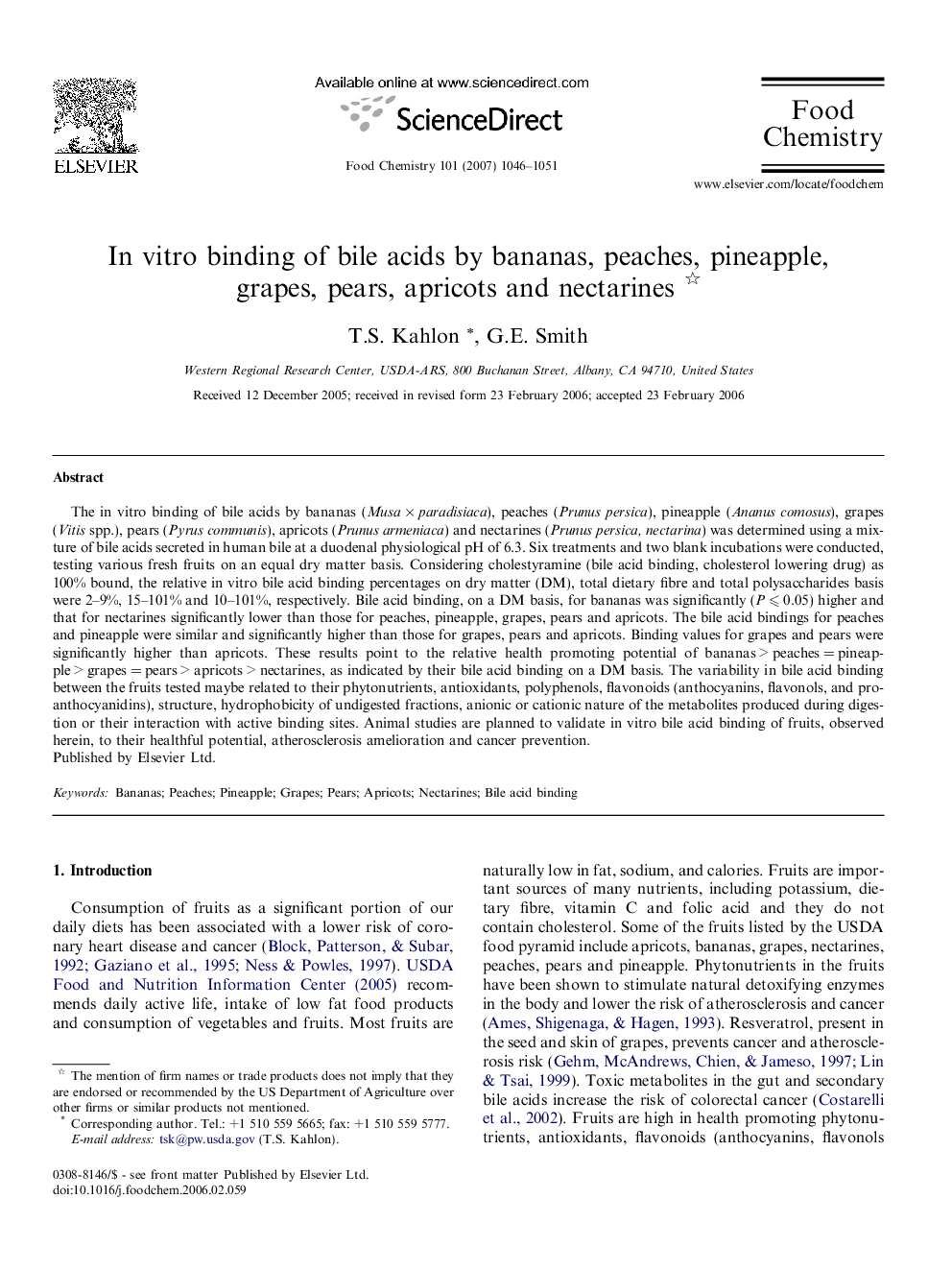| کد مقاله | کد نشریه | سال انتشار | مقاله انگلیسی | نسخه تمام متن |
|---|---|---|---|---|
| 1191826 | 963585 | 2007 | 6 صفحه PDF | دانلود رایگان |

The in vitro binding of bile acids by bananas (Musa × paradisiaca), peaches (Prunus persica), pineapple (Ananus comosus), grapes (Vitis spp.), pears (Pyrus communis), apricots (Prunus armeniaca) and nectarines (Prunus persica, nectarina) was determined using a mixture of bile acids secreted in human bile at a duodenal physiological pH of 6.3. Six treatments and two blank incubations were conducted, testing various fresh fruits on an equal dry matter basis. Considering cholestyramine (bile acid binding, cholesterol lowering drug) as 100% bound, the relative in vitro bile acid binding percentages on dry matter (DM), total dietary fibre and total polysaccharides basis were 2–9%, 15–101% and 10–101%, respectively. Bile acid binding, on a DM basis, for bananas was significantly (P ⩽ 0.05) higher and that for nectarines significantly lower than those for peaches, pineapple, grapes, pears and apricots. The bile acid bindings for peaches and pineapple were similar and significantly higher than those for grapes, pears and apricots. Binding values for grapes and pears were significantly higher than apricots. These results point to the relative health promoting potential of bananas > peaches = pineapple > grapes = pears > apricots > nectarines, as indicated by their bile acid binding on a DM basis. The variability in bile acid binding between the fruits tested maybe related to their phytonutrients, antioxidants, polyphenols, flavonoids (anthocyanins, flavonols, and proanthocyanidins), structure, hydrophobicity of undigested fractions, anionic or cationic nature of the metabolites produced during digestion or their interaction with active binding sites. Animal studies are planned to validate in vitro bile acid binding of fruits, observed herein, to their healthful potential, atherosclerosis amelioration and cancer prevention.
Journal: Food Chemistry - Volume 101, Issue 3, 2007, Pages 1046–1051